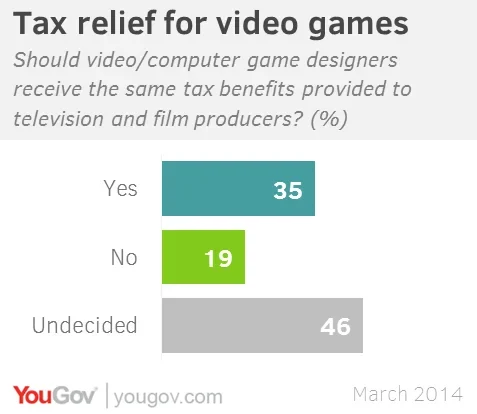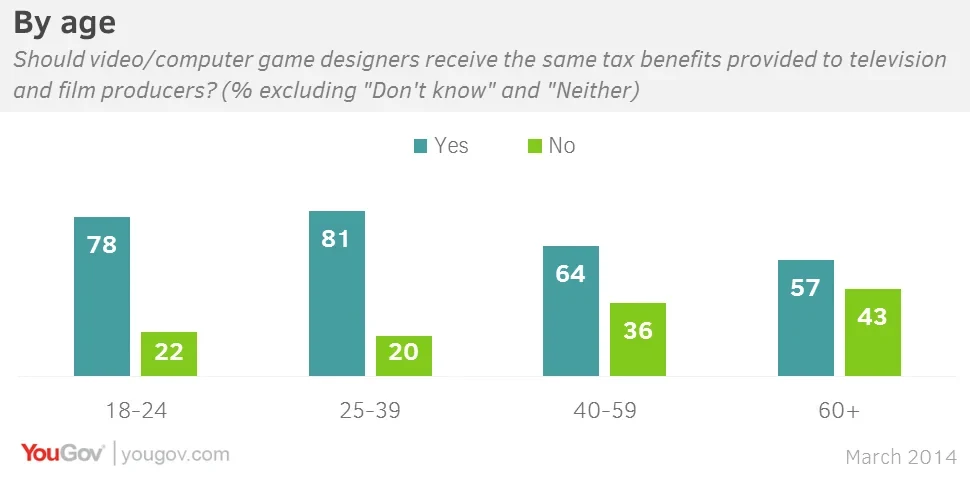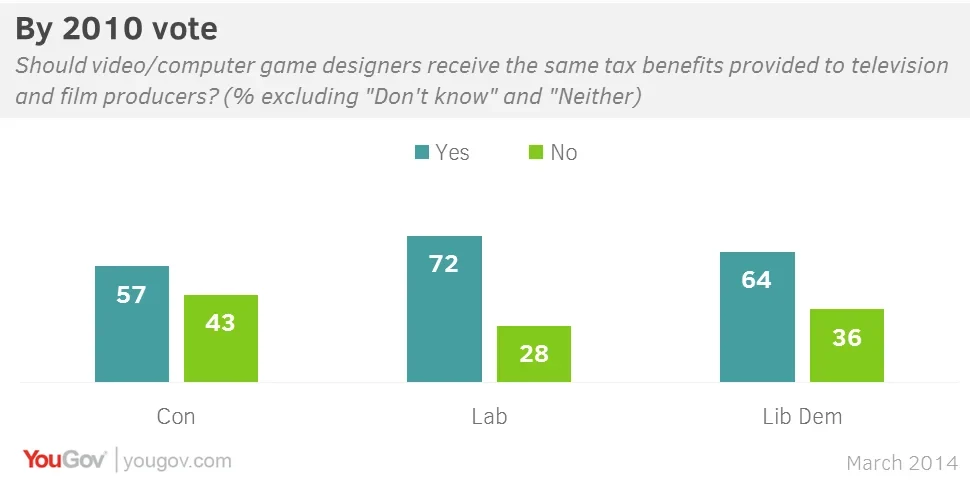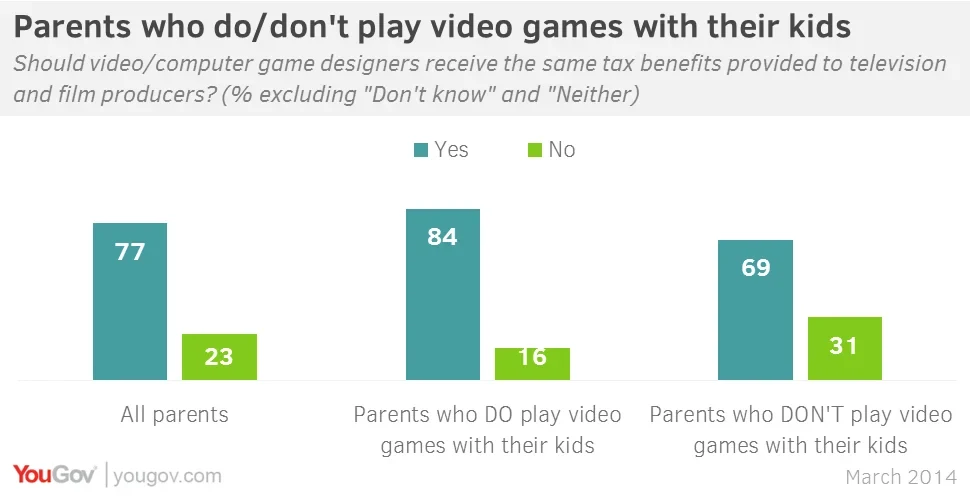Guest writer Dr Andrew Przybylski, of Oxford University, reveals new research that suggests people tend to be positive about granting tax credits to video game designers, but many are undecided
British video game development is big business. London-based King Digital, the makers of Candy Crush, recently completed an initial public offering that valued the company at more than $7bn (£4.16bn) and a number of other successful developers including Rockstar North, the U.K. have sold more than 150 million copies of their popular Grand Theft Auto franchise.
Despite these successes, changing public opinions about gaming, and a growing number of university programs teaching game design, it has been argued that the long-term prospects for the industry are grim because the UK is experiencing a “brain drain” of top game creator talent. Current efforts to woo these high tech jobs back from North America with tax credits are currently stalled. Recently, the innovation charity NESTA has argued that as a new creative medium, the makers of games should have access to Lottery Funding just like the Arts Council, British Film Institute and UK Sport.
A poll conducted by YouGov in cooperation with Dr. Andrew Przybylski, a research fellow at the University of Oxford, looked past the administrative limbo to examine what Britons actually think about providing tax credits for the makers of video games.

Overall, it seems that just over half of Britons (54%) have made their minds up about tax credits for game makers. Of those with an opinion on the matter,* two in three believe U.K. game developers should receive the same tax benefits that are provided to the producers of film and television programmes.
A more focused analyses of those who have an opinion on the matter showed that endorsing these views varied across age, political affiliation, and family experiences with games.
A generation gap
Analyses indicated that younger Britons were over six times (6.7x) more likely than older people to think game developers deserve the same tax benefits received by those in other creative industries.

The political dimension
Those supporting the Labour Party were nearly twice as likely (1.89x) as Conservative Britons to support gaming tax credits. Support among Liberal Democrats was slightly lower but mostly in line with Labour.

Families that play together…
By far the most interested trend observed in the data concerned British parents. More than three in four (77%) parents supported tax breaks for game makers and nearly half of parents polled (50%) said they played video game with their under-18 children. Further, parents who play video games with their children were two and half times (2.47x) as likely to support tax relief for games companies.

Video game development is an increasingly important part of both the UK economy and UK family life. Many argue games are a form of art on par with other creative industries this poll suggests there is potentially growing, support for future R&D tax and Lottery support. Many Britons (46%) have not made up their minds on the issue and specific groups appear to be driving the observed trends. Younger people, parents, and those who play games with their children. Providing these groups continue gaming into the future it is possible a greater portion of the population will make up their minds about tax support for U.K. game developers.
 Andrew Przybylski is a research fellow at the Oxford Internet Institute (OII). Since 2005 his research has focused on applying motivational theory to understand the universal aspects of video games and social media that draw people in, the role of game structure and content on human aggression, and the factors that lead to successful versus unsuccessful self-regulation of gaming contexts and social media use. Click here to view more of Andrew’s work.
Andrew Przybylski is a research fellow at the Oxford Internet Institute (OII). Since 2005 his research has focused on applying motivational theory to understand the universal aspects of video games and social media that draw people in, the role of game structure and content on human aggression, and the factors that lead to successful versus unsuccessful self-regulation of gaming contexts and social media use. Click here to view more of Andrew’s work.
The Oxford Internet Institute was founded in 2001 at the University of Oxford, as an academic centre for the study of the societal implications of the Internet. (More about the OII)
Image: Getty








